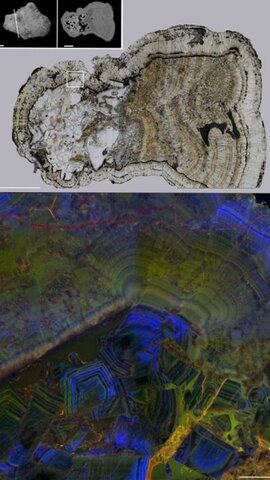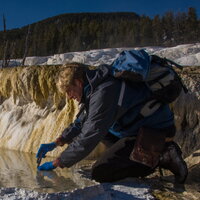Geology may play a part in solving one of the medical world's most painful problems! In a collaboration between the University of Illinois and the Mayo Clinic, researchers have shown that understanding the principles of rock formation can help us understand how kidney stones form and dissolve. Dr. Bruce Fouke, a Geology Department Professor and Director of the Roy J. Carver Biotechnology Center has spearheaded this work to show that the formation of kidney stones is very similar to the formation of the mineral travertine, the material that makes up much of hot springs at Yellowstone National Park. Professor Fouke and his lab took specimens of kidney stones from patients at the Mayo Clinic and thin-sectioned them, grinding the stones so thin that they can be investigated under a microscope. The results showed that these stones are constantly being built up and dissolved in cycles. This suggests that future treatments which promote the dissolution cycle could help treat these problematic rocks!
For more information, take a look at these pages from the Mayo Clinic.
GeoBioMed: How geologic rock formations inform novel treatments for kidney stones – Part I
GeoBioMed: How geologic rock formations inform novel treatments for kidney stones – Part II


